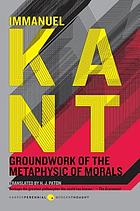INTRODUCTION TO PROBLEMS OF PHILOSOPHY
PHIL 2101 1NET
Summer, 2025
Instructor: Professor Lurz
Email: rlurz@brooklyn.cuny.edu
Virtual Office Hours: T, W, Th 9 - 10 AM
By the end of the semester, students are expected to be able to clearly express (in writing and speech) a few perennial philosophical issues (e.g., freedom of the will, the question of personal identity, the possibility and scope of knowledge, the objective status of moral values) and philosophical theories (e.g., determinism, compatibilism, skepticism, idealism, realism, relativism, and dualism). Students are expected to be familiar with a number of important philosophical figures (e.g., Descartes, Kant, and Mill), and be able to interpret and analyze key selections from the writings of these figures. Finally, students are expected to be able to identify, explain, and evaluate philosophical arguments.





|
Dates |
Assignments & Readings |
|
May 27 |
Online Zoom Intro to Course 12:00 PM – 1:00 PM (Eastern) |
|
May 28 |
Unit 1: Read except from Nagel’s What Does It All Mean?; Watch videos on What is Philosophy? and on Deductive Arguments; Listen to online lecture for Unit 1; Review Power-Point slides on What is Philosophy? |
|
May 39- June 2 |
Unit 2: Read Meditation 1 (pp. 144-149); Watch video on John Cottingham on Descartes; Listen to online lecture for Unit 2; Review Power-Point slides on Knowledge & Certainty. |
|
June 3 |
Written response # 1 due |
|
4-6 |
Unit 3: Read Meditation II (pp. 149-157); Watch video on René Descartes “I think therefore I am”; Start listening to online lecture for Unit 3; Review Power-Point slides on Foundations of Knowledge. |
|
7-10 |
Unit 3: Read Meditation III (pp. 157-171); Continue listening to online lecture for Unit 3; Review Power-Point slides on Foundations of Knowledge. |
|
11-12 |
Unit 3: Read excerpt from Meditation VI (p. 191). Finish listening to online lecture for Unit 3; Review Power-Point slides on Foundations of Knowledge. |
|
12 |
Online Zoom Midterm Review 12:00 PM – 1:00 PM |
|
13 |
Midterm Exam: Emailed to student at 12:00 PM and due by 1:00 PM |
|
13 |
Written response #2 due |
|
14-18 |
Unit 5: Read chapter 2 of Mill’s Utilitarianism; Listen to online lecture for Unit 5; Watch the videos on Peter Singer on Utilitarianism and on The Trolley Problem; Review Power-Point slides on Ethical Theories. |
|
19-27 |
Unit 5: Read excerpts from Kant’s Groundwork (pp. 88-91; 95-98); Continue listening to online lecture for Unit 5; Watch video on Right and Wrong: Kant’s Axe; Review Power-Point slides on Ethical Theories |
|
27 |
Written response #3 due |
|
28-July 2 |
Unit 6: Read Taylor’s “Freedom and Determinism”; Listen to online lecture for Unit 6; Watch the video on Sam Harris on Free Will; Review Power-Point slides on Two Concepts of Free Will. |
|
3-6 |
Unit 6: Continue listening to online lecture for Unit 6; Watch video on Haggard, Free Will and Libet Experiment; Watch video on Mele, Does Free Will Exist? Review Power-Point slides on Two Concepts of Free Will; Review Power-Point slides on Free Will and Libet Experiment |
|
7 |
Written response # 4 due; Re-written response paper due; extra credit assignment due |
|
7 |
Online Zoom Final Exam Review 12:00 PM – 1:00 PM |
|
8 |
Final Exam: Emailed to student at 12:00 PM and due by 1:00 PM |